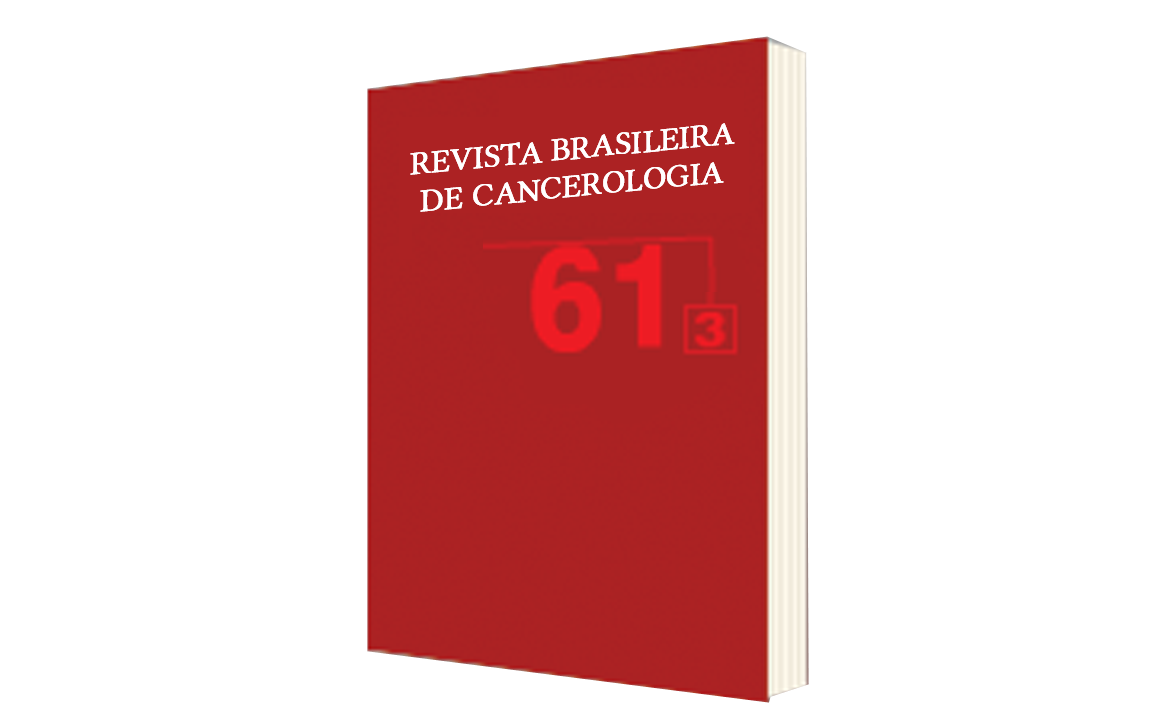Avaliação Subjetiva Global Produzida pelo Próprio Paciente e Indicadores de Risco Nutricional no Paciente Oncológico em Quimioterapia
DOI:
https://doi.org/10.32635/2176-9745.RBC.2015v61n3.253Palavras-chave:
Avaliação Nutricional, Estado Nutricional, Quimioterapia, Efeitos Colaterais e Reações Adversas Relacionados a Medicamentos, NeoplasiasResumo
Introdução: A Avaliação Subjetiva Global Produzida pelo Próprio Paciente é recomendada durante a assistência nutricional em oncologia para detecção precoce do risco nutricional ou desnutrição. A localização do tumor e o esquema quimioterápico podem por si só auxiliar na detecção do risco nutricional. Objetivo: Descrever a classificação do estado nutricional, segundo método subjetivo, e os indicadores de risco nutricional no paciente oncológico em quimioterapia. Método: Estudo descritivo do tipo série de casos, realizado no setor de quimioterapia de um hospital universitário, de agosto a dezembro de 2014. Participaram da pesquisa indivíduos adultos e idosos, de ambos os sexos, com idade ≥20 anos, diagnosticados com câncer, acompanhados ambulatorialmente e que haviam iniciado o primeiro ciclo de quimioterapia. A localização do tumor e a terapia antineoplásica foram utilizadas como indicadores de risco nutricional. A avaliação nutricional foi realizada pela Avaliação Subjetiva Global Produzida pelo Próprio Paciente. Resultados: Foram estudados 30 pacientes, com idade média de 49,1±16,4 anos. Vinte e cinco entrevistados (83%) eram tratados exclusivamente com quimioterapia. Segundo a localização do tumor e o esquema quimioterápico, 67% e 100%, respectivamente, foram considerados de médio a alto risco nutricional. Pela avaliação subjetiva, 17 (56,7%) apresentaram risco nutricional ou desnutrição moderada (grau B) e seis (20%) desnutrição grave (grau C). Pela pontuação obtida no formulário subjetivo, a necessidade de intervenção nutricional foi verificada em 23 (76,7%). Conclusão: Na amostra estudada, foram elevadas as frequências de tumores e terapias agressivas de risco nutricional/desnutrição, assim como de necessidade de indicação de terapia nutricional.









